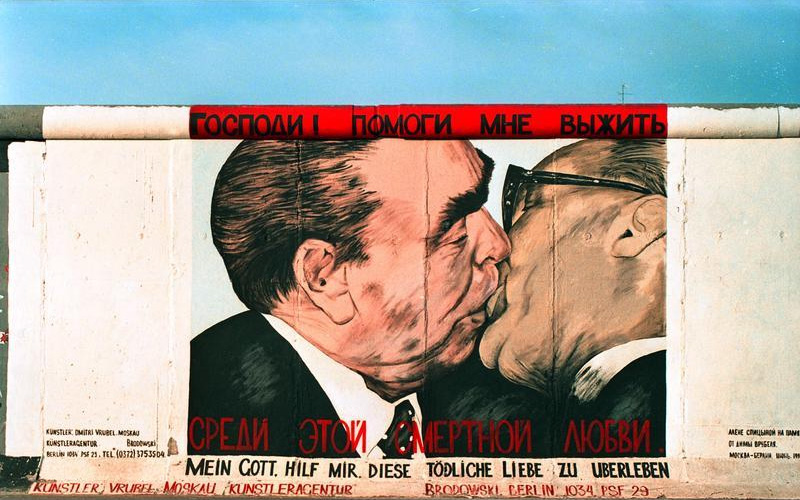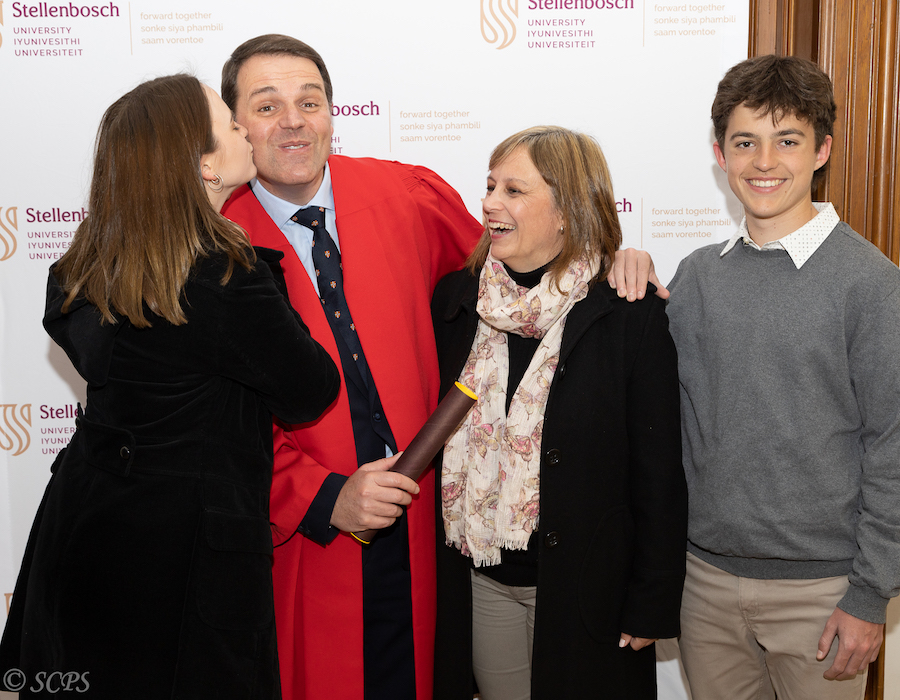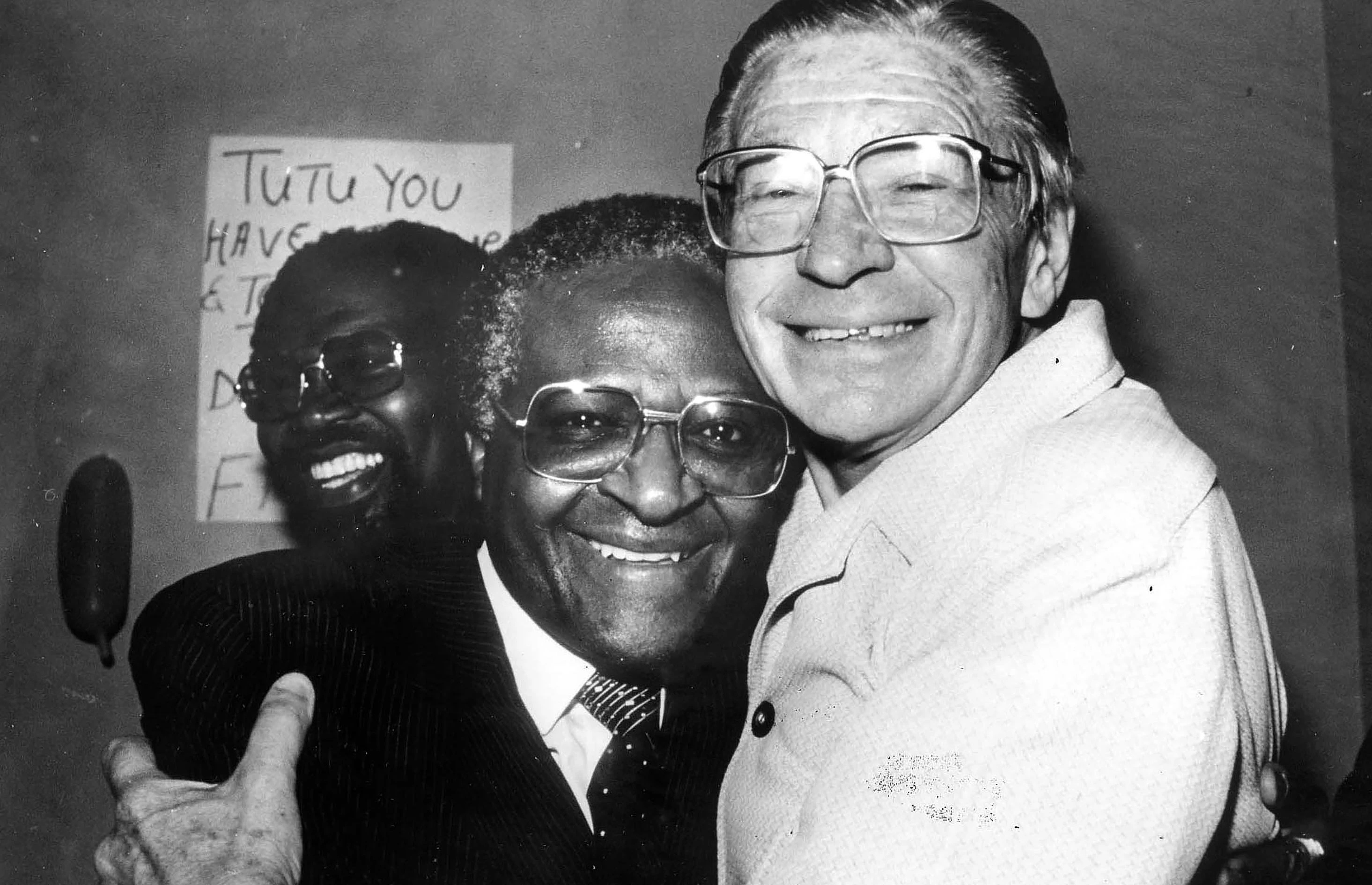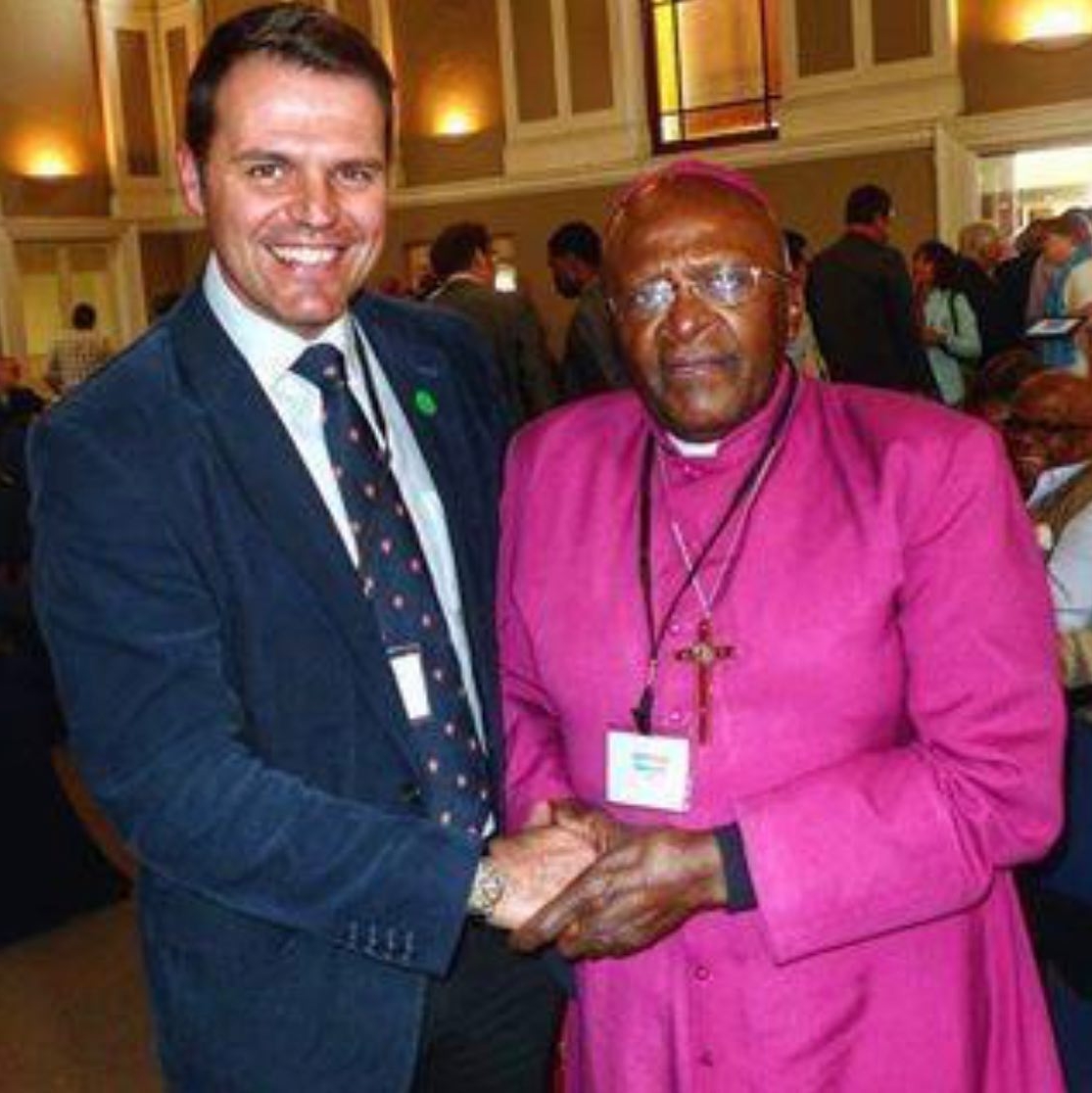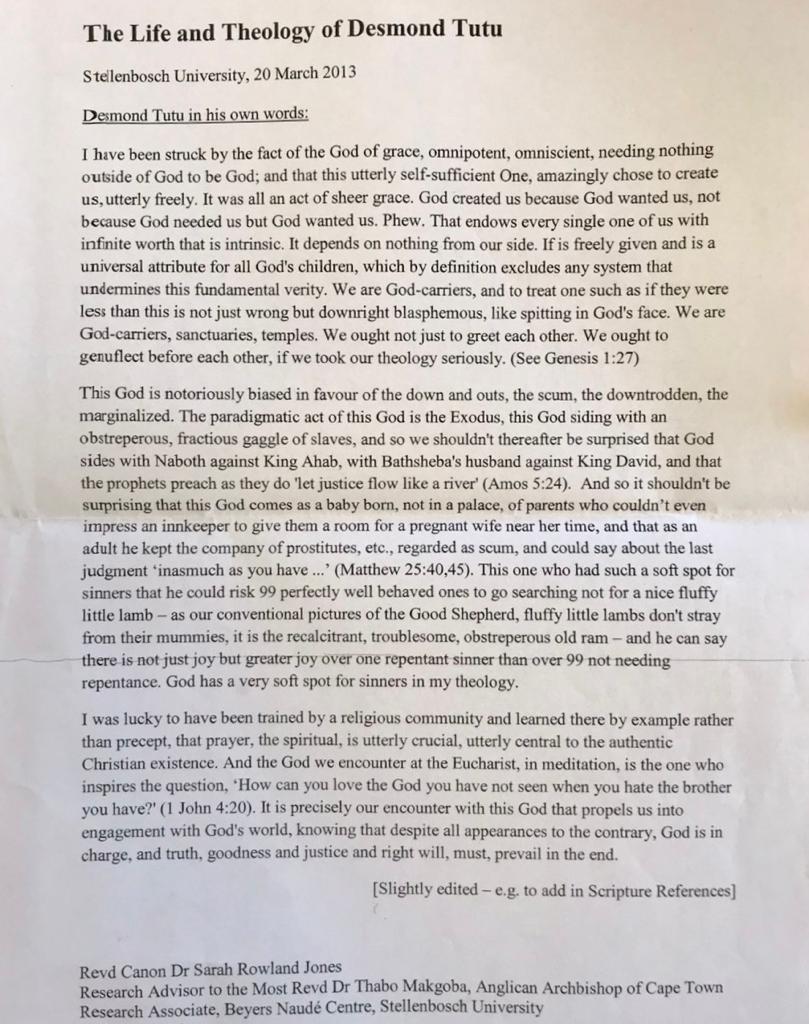The South African academic system requires that when you reach a certain stage in your formal academic career, that you apply for a National Research Foundation (NRF) rating. This system of peer review is attached to research funding mechanisms, promotion within South African Universities, and can ensure tenure (academic employment security).
It is quite a taxing process, and the outcomes can be quite uncertain. Once you have been rated, you need to repeat the application for review every 5 years or so.
Other than the formal opportunities that an NRF rating affords (such as funding, tenure etc. as mentioned above), there is another aspect that I have found particularly helpful. In your application you have to write a 'personal academic narrative' to trace what you have been doing for the last five years, where your work has found purchase and a readership, and what you hope or plan to achieve in the next phase of your academic career.
I am about to start preparing for my second cycle of review (I am up for review again in 2021). As I have been reflecting on my own academic work, I have realised (as you will see on this website, and from my publication list) that I have been focussed on issues related to public theology and political theology for almost 2 decades now. My first PhD (awarded in 2006) focussed on issues related to intersubjective identity formation (basically, how we are formed within social systems). I was particularly interested in the formation of political identities based on concepts such as 'tacit beliefs'.
By 'tacit beliefs' I am referring to what Graham Ward would call the 'Cultural Imagination', and Charles Taylor would call 'Modern Social Imaginaries'. Yuval Harari also picked up on these notions in his books 'Sapiens' and 'Homo Deus'. In summary, such 'beliefs' are the imaginative worlds that we inhabit that are constructions of our collective histories and experiences. For example, I often ask my undergraduate students why women in Western societies have long hair, or wear dresses, and shave their legs? When men wear trousers and don't generally shave their legs. What makes one thing acceptable and another not acceptable? And why is it that what is acceptable in one culture, or region, is unacceptable in another culture or region? In large measure it is the set of unquestioned 'beliefs' that we hold about what is good, what is right, and what is desirable (this is the cultural imagination), and how the go on to form the ways in which we believe our society should function for the common good (these are the boundaries of of social imaginaries, or social imagination).
We adopt these largely unquestioned values in our homes, in our communities, and sometimes even see them take on powerful forms in laws, and even structures.
Another example that I have often used in my classes is the concept of the 'nation'. What is a nation? Of course one could offer a legal, a cultural, a geographic, or a historical (among other!) explanation of nationhood. But, the absurdity of nationhood is easily illustrated by 'border walls' (like the American cultural construction, which is becoming a physical construction). When an American says 'God bless America' (a clearly theological claim), who is the 'God' to whom they are appealing in this statement? Surely, it is not the God of the Christian religion, who would surely not favor Mexicans over Americans, or the other way around! Does God really care more about persons on one side of a line on a map, than persons on the other side?
As Harari points out, we inhabit these systems (like nations) as if they are ontological systems (that exist in eternity). Of course they do not. They are historical, political, and social constructions. Borders change, powers within (and around) nations shift. History shows that they do not last.
Stanley Hauerwas, the Duke University ethicist and theologian, once remarked that to be willing to go to war, and die, for one's nation, is a little bit like going to war for one's postal service! When you think about it in that way, it seems quite ridiculous.
The other example that I often use is in my classes relates to how we view economic systems (such as currencies, global money flows etc.) I often will take a 1US$ note, or something from our South African currency (a R20 note), and ask the students how much it is worth? Of course there are two ways to quantify the worth. One is the actual physical value of the object based on its production cost and the materials used to construct it. Given the economies of scale, neither a US$1 or R20 note are worth what they are valued at (after all, they are just paper, ink, and some other synthetic elements). So what accounts for their 'greater' worth? Well, that is the aspect of 'belief' that relates to the value. Because of generalised agreements developed through economic, political, and social theories, there are sets of rules, policies, and behaviours that determine what each currency is worth. For example, we have 'ratings agencies' that 'value' currencies, and often do so in relation to aspects such a confidence in a nation's ability to 'add value' to their own economy and the global economy. If there is general agreement that a nation can produce value (producing products, or delivering services) that have some value that others are willing to pay, or trade, for, and there is confidence that they can continue to 'grow' this value, their currency will be rated more highly than that of a nation which is producing less perceived value, or in which there is not great confidence in the leadership, policies, and technologies, work force, resources, to produce ongoing or increased value.
The days in which one could take your US$1 note to 'Fort Knox' (or the treasury) and request a US$1 worth of gold are long gone! There is, among some, still a generalised belief that a currency, and its signifiers (bank notes, bank balances etc.) are directly related to actual things that hold value. Of course, gold itself, finds it value in the 'belief' that it is a precious metal (this is also a historical, cultural and social construct).
So, why all of this? Well, in recent years I have increasingly found myself working at the intersections of what we may call religious beliefs (i.e., those beliefs that are associated with historical religions, their sacred texts, doctrines, practices, values and communities), and what I am identifying as 'non-religious' beliefs. These non-religious beliefs are things such as nations, economic systems, gender identities, ethnic identities, cultural identities and a variety of other social and politically systems that shape our lives so powerfully.
Harari suggests that homo-sapiens are the only 'species' that has come to place higher value in what does not actually exist (e.g., myths, beliefs, theories, concepts and other such social contracts and agreements), than in things that actually do exist. For example, we will allow political convictions to displace people, to change the natural flow of rivers, and alter global and regional climates!
To my mind, engaging, understanding, and dealing with such complex problems is not something that can be adequately done by sociologists, anthropologists, politics scientists, or even philosophers. It does require a dialogue with persons who have developed critical theological skills. This, most surely, is the role of the 'public theologian', in the sense in which some public theologians draw upon Jürgen Habermas and David Tracy's respective notions of understanding notions of the 'public sphere' and 'publicness' (as a space in which reasonable engagement from different perspectives, disciplines, and fields can engage one another).
So, this is some of what I have been doing in my recent work, much of which you will find documented here on my website, and of course also on my research profile (see the publication list on my 'about' section). I would love to hear what you think about the notion of 'non-religious' theological belief? Is it reasonable, in the way in which I have framed it here? What are your thoughts in notions such as cultural imaginations, social imaginaries and the constructions of identities, and of course social (and even physical) structures?
 Sunday, November 30, 2025 at 1:29PM
Sunday, November 30, 2025 at 1:29PM  We would like to begin by expressing our deep gratitude to Prof. Sebastian Kim and the organising committee at Fuller Theological Seminary for hosting an exceptional GNPT Consultation in 2025. Their commitment ensured that our community could still gather, reflect, and learn, even when an in-person meeting proved impossible.
We would like to begin by expressing our deep gratitude to Prof. Sebastian Kim and the organising committee at Fuller Theological Seminary for hosting an exceptional GNPT Consultation in 2025. Their commitment ensured that our community could still gather, reflect, and learn, even when an in-person meeting proved impossible.

